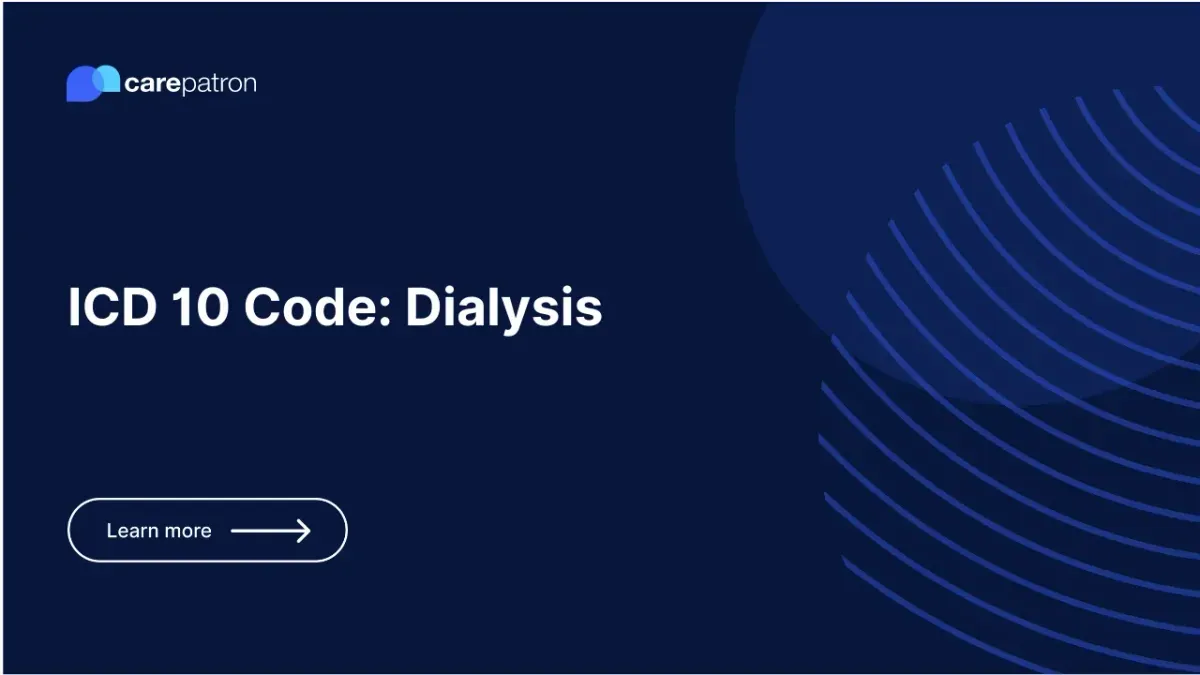
Dialysis ICD-10-CM Codes
Learn the most common Dialysis ICD-10-CM codes for documenting hemodialysis, peritoneal dialysis, ESRD, and kidney failure treatment and care.
Use Code
Commonly asked questions
Most patients on hemodialysis receive treatment three times per week, with each session lasting around 3 to 5 hours. Peritoneal dialysis is typically performed daily, either manually or using a machine overnight.
No, dialysis does not cure kidney disease; it only performs the vital functions of the kidneys when they fail. It is considered a life-sustaining treatment while patients await a kidney transplant or manage end-stage renal disease long-term.
Dialysis itself is generally not painful, but some patients may experience discomfort from needle insertion or side effects like cramping or low blood pressure. Most people adjust over time, and care teams work to minimize any discomfort.
EHR and practice management software
Get started for free
*No credit card required
Free
$0/usd
Unlimited clients
Telehealth
1GB of storage
Client portal text
Automated billing and online payments
